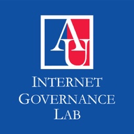The Internet Governance Lab is hosting the event "Choosing New Technologies for a Better Internet: Who Decides?" sponsored by the Washington, DC Chapter of the Internet Society on Friday, March 1, 2018 from 3:00pm-4:30pm on the American University campus in the Mary Graydon Center, Conference Room 2 (Ground Floor).
Moderated by Ari Schwartz of Venable, a panel of experts will discuss how the security and stability of the Internet can be improved at the levels of technical standards, protocols, and practices, as well as if these actions pose a risk to the interoperability that makes the Internet the Internet and what role, if any, governments should play.
Speakers include Chris Boyer of AT&T; Alissa Cooper, Chair of the Internet Engineering Task Force (IETF); Olafur Gudmundsson of Cloudflare; and Andrew Sullivan of Oracle Dyn.
The recent high-profile debates on encryption and surveillance policy have eclipsed ongoing efforts to deploy new technologies and protocols to enhance the security of the network layer, the Domain Name System, the World Wide Web, and other parts of the Internet. Standards such as DNSSEC and BGPSEC, which apply to the DNS and were developed via the multistakeholder model, have been in development for years. Their effect has been positive, but limited.
At the same time, in response to demands for more security, better privacy, and better performance, some key Internet players have taken action without waiting for “rough consensus.” For instance, they promote such policies as SSL encryption of websites, non-recognition of self-certificates, and enforcement of TTLS default email encryption. Although these measures, in the aggregate, enhance security throughout the Internet, the process through which private entities unilaterally impose their preferred security solutions and architectures raises significant issues of process, accountability, transparency, and potential conflicts of interest.
